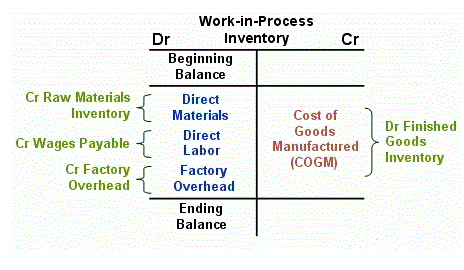
To achieve basic objectives and implement fundamental qualities, GAAP has four basic assumptions, four basic principles, and five basic constraints. The process of figuring out how much your inventory is worth is called inventory valuation. EY is a global leader in assurance, consulting, strategy and transactions, and tax services.
How to record the lease liability and corresponding asset

Each country’s own version of the FASB, such as the Canadian Institute of Chartered Accountants (CICA), creates these rules. Under GAAP, only discontinued operations that represent strategic shifts that will either have a major impact on an organization’s operations or its financial results must be reported. For example, if the organization decides to discontinue (or has already discontinued) a major geographic area, plans to discontinue a major line of business, or discontinue a major equity method investment. Discontinued operations are company assets or components of a business that the organization has already discontinued or plans to discontinue. An entity using IFRS rules can classify equity method investments as « held for sale, » which is not possible under GAAP.
GAAP vs. IFRS

It is recommended that the balance sheet separates current and noncurrent assets and liabilities, and deferred taxes are included with assets and liabilities. GAAP stands for generally accepted accounting principles, which are the generally accepted standards for financial reporting in the United States. IFRS stands for International Financial Reporting Standards, which are a set of internationally accepted accounting standards used by most of the world’s countries. Generally Accepted Accounting Principles (GAAP or US GAAP) are a collection of commonly-followed accounting rules and standards for financial reporting.
An Overview of GAAP vs. IFRS

For these entities, adopting IFRS can streamline financial reporting by eliminating the need to reconcile multiple accounting standards. This harmonization not only reduces administrative burdens but also enhances the efficiency of financial consolidation processes. Multinational corporations can present a unified set of financial https://www.bookstime.com/ statements, making it easier for stakeholders to assess the company’s overall performance and financial health. Generally accepted accounting principles, formally designated in the United States as GAAP, vary from country-to-country, and no universally accepted accounting recording and publishing system currently exists.
- Following GAAP guidelines and being GAAP compliant is an essential responsibility of any publicly traded U.S. company.
- Taxes, for example, are reported based on statutory rates, not on what the company actually paid.
- Without these rules and standards, publicly traded companies would likely present their financial information in a way that inflates their numbers and makes their trading performance look better than it actually was.
- In Europe and elsewhere, International Financial Reporting Standards (IFRS) are established by the International Accounting Standards Board (IASB).
- Other influential organizations include the Government Finance Officer’s Association (GFOA), American Accounting Association, Institute of Management Accountants, and Financial Executives Institute.
- Countries must navigate the complexities of aligning their existing accounting frameworks with IFRS, which often involves substantial changes in accounting policies and practices.
- A focus on principles may be more attractive to some as it captures the essence of a transaction more accurately.
- It is the established system in the European Union (EU) and many Asian and South American countries.
- The following subsections introduce and explain the roles that various boards and organizations play in the ongoing development of generally accepted accounting principles.
While it’s not necessary for you to know every in and out of GAAP unless you’re an accountant, you’re doing well to at least familiarize yourself with the basic principles. Gaining at least a conceptual understanding of the motivations behind GAAP will help you keep the financial reporting side of your business running smoothly. Any person or party involved in, or responsible for, the financial side of a business must be honest in all reports and transactions.
Understanding GAAP rules
- Consequently, the theoretical framework and principles of the IFRS leave more room for interpretation and may often require lengthy disclosures on financial statements.
- Companies sometimes do that when they believe the GAAP rules don’t fully capture specific operational nuances.
- It is an important tool for anyone applying, auditing, interpreting, regulating, studying or teaching IFRS.
- The way a balance sheet is formatted is different in the US than in other countries.
- Securities and Exchange Commission (SEC) has openly expressed a desire to switch from GAAP to IFRS, development has been slow.
Generally accepted accounting principles (GAAP) comprise a set of accounting rules and procedures used in standardized financial reporting practices. By following GAAP guidelines, compliant organizations ensure the accuracy, consistency, and transparency of their financial disclosures. These principles ensure consistency, accuracy, and transparency in financial reporting across various industries in the United States. Public companies is gaap used internationally must follow GAAP when preparing their financial statements, which is also widely used in governmental accounting. Generally accepted accounting principles (GAAP) is the accounting standard set by the Financial Accounting Standards Board (FASB) for the Securities and Exchange Commission (SEC) in the United States. It’s a rule-based system all domestic and Canadian publicly traded companies must follow when filing financial statements.